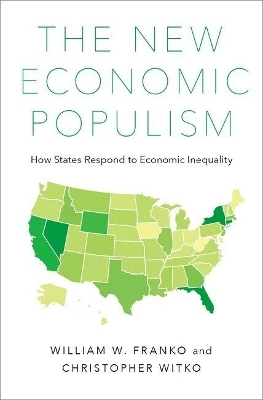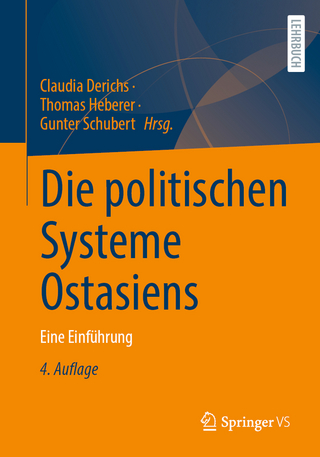
The New Economic Populism
Oxford University Press Inc (Verlag)
978-0-19-067101-3 (ISBN)
There is a growing consensus among scholars that one of the biggest drivers of income inequality in the United States is government activity (or inactivity). Just as the New Deal and Great Society programs played a key role in leveling income distribution from the 1930s through the 1970s, federal policy since then has contributed to expanding inequality. Growing inequality bolsters the resources of the wealthy to influence policy, and it contributes to partisan polarization. Both prevent the passage of policy to address inequality, creating a continuous feedback loop of growing inequality.
The authors of this book argue that it is therefore misguided to look to the federal government, as citizens have tended to do since the New Deal, to lead on economic policy to "fix" inequality. At the same time, they demonstrate that the states are already vigorously confronting this problem. In fact, as they show, periods of rapid economic change post New Deal have consistently resulted from state action, while the federal government has been stymied by the federal institutional design created through the Constitution. Even the New Deal, in many ways the model of federal policy activism, was largely borrowed from policies created in the state "laboratories of democracy" in the preceding years and decades.
William Franko and Christopher Witko argue that the states that will address inequality are not necessarily those with the greatest objective inequality, but those where citizens are aware of growing inequality, where left-leaning politicians hold power, where unions are strong, and where the presence of direct democracy initiatives have influenced majoritarian political institutions. In the empirical chapters Franko and Witko examine how these factors have shaped policies that boosted incomes at the bottom (the minimum wage and the Earned Income Tax Credit) and reduce incomes at the top (with top marginal tax rates) between 1987 and 2010. The authors argue that, if history is a guide, increasingly egalitarian policies at the state level will spread to other states and, eventually, to the federal level, setting the stage for a more equitable future.
William Franko is Assistant Professor of Political Science at Auburn University. Christopher Witko is Associate Professor of Political Science at University of South Carolina.
List of Tables and Figures
Chapter 1 - Introduction
Chapter 2 - Economic Inequality, Federalism and the New Economic Populism
Chapter 3 - Growing Inequality and Public Awareness of Inequality in the States
Chapter 4 - Awareness of Inequality and Government Liberalism
Chapter 5 - Taxing the Rich: The Initiative, Attitudes toward Inequality, and Washington's Proposition 1098
Chapter 6 - State Responses to Federal Inaction and Growing Inequality: The Case of the Minimum Wage
Chapter 7 - Building on Success: The Case of the Earned Income Tax Credit
Chapter 8 - The New Economic Populism and the Future of Inequality in the U.S.
Appendix A - Measurement and Methodology
Appendix B - Data and Results
Notes
References
Index
| Erscheinungsdatum | 22.02.2018 |
|---|---|
| Verlagsort | New York |
| Sprache | englisch |
| Maße | 152 x 236 mm |
| Gewicht | 499 g |
| Themenwelt | Sozialwissenschaften ► Politik / Verwaltung ► Politische Systeme |
| Sozialwissenschaften ► Politik / Verwaltung ► Politische Theorie | |
| Sozialwissenschaften ► Politik / Verwaltung ► Staat / Verwaltung | |
| Wirtschaft ► Allgemeines / Lexika | |
| Wirtschaft ► Volkswirtschaftslehre ► Makroökonomie | |
| ISBN-10 | 0-19-067101-7 / 0190671017 |
| ISBN-13 | 978-0-19-067101-3 / 9780190671013 |
| Zustand | Neuware |
| Informationen gemäß Produktsicherheitsverordnung (GPSR) | |
| Haben Sie eine Frage zum Produkt? |
aus dem Bereich


